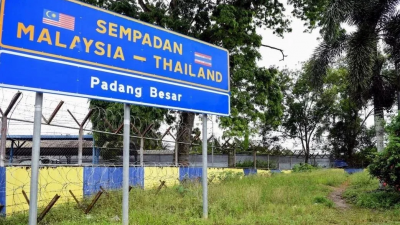将到来的2023年──兔年,将是过去牺牲得到慷慨回报的一年。2022年来到尾声,新的联合政府也上台了,我们看到了很多承诺,但执政联盟在选举宣言中的改革议程几乎没有进展。2023年的到来,会否在经济方面看到有意义的变化?
从好的方面来看,希盟和团结政府首相安华重申,他的首要职责是照顾好人民的福祉,而不是建设宏伟的巨型建筑。因此,他的首要任务是帮助城市贫民,以及小贩和小商家。
这看似很好,但忽视了大多数非马来选民在国阵歧视性政策下遭受到的忽视和困境。马来西亚华人和印度人已充分意识到空谈是廉价的。他们正等待当权者履行大选时的承诺。
无论如何,我们还是看到两项令人鼓舞的措施,表明新政府在许多改革问题上不会拖延,这两项措施也是希盟在野时一再关注的课题。
新政府上台后,立即终止了之前通过政治委任的所有官联公司、法定机构和国家投资基金的主席和董事会成员,这是正面的举动,但相比遏制“寻租”、腐败、管理不善和众所周知这些政治委任普遍存在的利益冲突,造成国家数千亿令吉的损失,这改革是微不足道。
改革可以从现有的官联公司开始,以确保它们为国家经济做出贡献,而不是成为国家经济负担和财政拖累。官联公司的治理和种族偏见、经济效益、财务可持续性以及与此相关的许多问题,一直隐藏在政策关注和公众监督之外。我们需打开这黑箱审视。在罢免政治任命后,政府也应把没提供多少附加价值,反而排挤了私人界参与者的寄生与没表现官联公司脱售。
另一个积极的发展是联邦直辖区部降格为局。批评内阁规模臃肿者就指出——1969年时马来西亚只有19名部长和5名助理部长;可到了依斯迈沙比里的内阁,竟有32名部长和38名副部长──长期以来部长数量大幅增加是没有道理的,这仅是为了奖赏国阵领袖。
重新安置联邦直辖区部以及内阁规模缩减至只有28位部长和27位副部长,给予人们新的希望,新首相准备应对可能是财政部房间里的大象——臃肿的公共服务体系。
需有政治意愿
目前160万公务员的薪酬连同退休金的预算,几乎占联邦政府年收入的一半。这也相等于主要由非马来人来缴付的个人所得税和公司税的总收入。
缩小庞大的公务员体系和削减营运开支,也是世界银行和每一家曾在我国做生意的知名金融服务谘询机构都倡议过的。然而,要精简公务员体系计划,在政治上似乎是困难的,因90%公务员是马来人。可是,相对于在私人界的1340万选民,新政府更不应被公共领域内的160万选民挟持。
享受著终身养老金的公务员利益是在私人界员工牺牲他们财务安全需求下建构起来的。更关键的问题,不只是公务员的规模和成本。 同样重要或更重要的是,公共部门的绩效质量方面,不管是独立性、问责、透明度和公正性上都不达标,同时在招聘和管理层委任上
没有任人唯贤。如果有政治意愿落实非种族歧视政策,这些问题是很容易纠正的。
最后,同样重要的是经济方面的发展,经济事务部长拉菲兹呼吁民众“集体”努力遏制飙升的通货膨胀。在他突出言论中,指公众对通货膨胀和食品价格持续上涨负有部分责任。 因此,他特别建议低收入群体改变消费行为,避免购买价格不合理的商品以抑制通货膨胀。
拉菲兹和他的政策团队显然不了解低阶层民众(B40)。他们似乎不了解贫困的经济学。他们也好像不知道统计局定义的一篮子商品和服务中最便宜的商品价格,如食品和主食、制成品、服装、交通、医疗保健等,在过去几年里是如何上涨的,许多涨幅非常惊人。
如果当局有严密跟踪物价走势或购买米、牛奶、面粉、食用油、鸡蛋、肉类、鱼类、蔬菜、水果和其他生活必需品,他们面对著的不仅仅是价格上涨的现象,他们还会对官方发布的消费者物价指数(CPI)数据感到困惑。消费者和一些分析师认为官方数据具有误导性,并且低估了所购买商品的实际价格。
在过去的一年里,我国的消费者物价指数(CPI)从2021年11月的124点上升到2022年11月的129点——一个小得令人难以置信的数字。从2018年到2022年的CPI趋势数据——121点到129点,4年只上升8点——更不靠谱!就连经济事务部长也可能发现去年3.3%的官方通膨数据是难以站得住脚的。
然而,将飙升的通货膨胀归咎于消费者、小商贩、咖啡店、小食店和其他没有发言权或影响力的群体,尽管可成吸睛的头条新闻和文本,可实际上却为新政府在处理通膨问题上减分。
目前,在能精确和严格地确定通货膨胀的源头之前,政府最好集中精力消除食品和基本用品领域的垄断现象,这也是希盟选举宣言里关键优先事项。民众,尤其是在最近大选中把票投给希盟者,应在这个问题上发声,避免新政府的施政不进则退。
本文为作者2023年展望系列文章第一篇,主要关注于希盟第15届大选宣言改革承诺和团结政府的其他选举承诺。
林德宜《2023年:改革开始之年》原文:2023: The Year To Begin Reformasi
The year of The Rabbit is one where the sacrifices of the past are rewarded generously.
The end of 2022 and beginning of the new unity government has seen lots of promises but little action on the Reformasi agenda contained in the new coalition's election manifestos. Can 2023 see meaningful change on the economic front?
On the plus side, Pakatan and unity government chief, Anwar Ibrahim, has reiterated that his main responsibility as prime minister is taking care of the people's welfare, not constructing grand mega buildings. Hence his first order of business is to help the urban poor, as well as hawkers and small traders.
Well and good. This much neglected constituency has a majority of non-Malays who have been neglected and suffered under Barisan’s discriminatory policies. Malaysian Chinese and Indians are also fully aware that talk is cheap. They await with bated breath for the follow up actions for the implementation of the promise.
We have also seen two encouraging measures undertaken to indicate that the new government may not be planning to drag its feet on the numerous reform issues that the Pakatan coalition parties have repeatedly drawn attention to when they were out of power.
GLC and Civil Service Reform Needs Immediate Cabinet Review
The dismissal of all chairmen and board members of government-linked companies, statutory bodies and state-investment funds appointed politically with immediate effect is a positive but really tiny step in curbing patronage, corruption, mismanagement and issues of conflict of interest known to be widely rampant in the economy and costing the nation trillions of ringgit.
Reform can begin with the existing GLCs to ensure that they become a contributor to the national economy rather than being an economic deadweight and fiscal drag. Governance and racial bias, economic costs, financial sustainability and a host of other issues related to GLCs have been hidden from policy attention and public scrutiny. This box of skeletons needs to be opened up.
The divestment by Government of parasitic and non performing GLCs that provide little value added but have instead crowded out private sector players should begin after the removal of political appointees.
Another positive development is the announcement that the Federal Territories Ministry is being downgraded to departmental status.
Critics of the bloat in the Cabinet size - in 1969 Malaysia had 19 Ministers and 5 Assistant Ministers; Ismail Sabri’s cabinet had 32 ministers and 38 deputy ministers - have long complained that the large increase in the number of
Ministers has been unjustified and simply reflected the inclination to reward Barisan leaders.
The Federal Territories reassignment together with the reduction in size of his cabinet to a total of 28 ministers and 27 deputy ministers gives hope that the new Prime Minister may be prepared to tackle perhaps the biggest elephant in the Treasury room - the nation’s civil service.
Currently the budget of the 1.6 million civil servants together with the pensions and gratuities bill comes up to nearly half of the federal government’s annual revenue. It is also the total of all personal and company tax collected mainly paid by non-Malays.
Rightsizing the massive civil service and cutting back on their operating expenditure have been advocated by the
World Bank and every reputable financial services consultancy organisation that has done business in Malaysia.
Implementing a downsizing programme has been seen as politically difficult as 90% of civil servants are Malays. However the new government should not be held hostage by 1.6 million voters whose number is outnumbered by the 13.4 million worker voters in the private sector.
Private sector workers have had their financial security needs sacrificed to protect the interests of their public sector counterparts who enjoy lifelong pensions.
It’s not only the size and cost of the civil service that matters. Just as or more important is the quality of performance as the country’s public sector has received poor marks in relation to its independence, accountability, transparency and impartiality, and absence of recruitment and senior management based on meritocracy. These concerns can be more easily corrected if there is the political will to implement non-discriminatory racial policies.
Dealing with Inflation
Last but not least among developments on the economic front is the call by Economic Minister Rafizi for a “collective” effort to rein in soaring inflation. Given prominence in his speech is the disclosure that the public are partly responsible for the continued rise in food prices and rising inflation. Hence his advice especially to the lower income group to change their consumption behaviour and avoid buying unreasonably priced goods to curb inflation.
Rafizi and his policy team are clearly not in the B40 group. Neither do they appear to be knowledgeable about the economics of poverty. They also appear to be ignorant of how the prices of the cheapest items in the Malaysian basket of goods and services defined by the Department of Statistics such as foodstuff and staples, manufactured goods, clothing, transportation, healthcare, etc have increased during the last few years, many quite dramatically.
If independent stakeholders have been scrupulously monitoring prices or buying rice, milk, flour, cooking oil, eggs, meat, fish, vegetables, fruits and other daily necessities, they will not only be confronted by the phenomenon of rising prices. They will also be mystified by the official Consumer Price Index (CPI) data which consumers and some analysts feel is misleading and has underestimated the actual pricing of goods purchased.
During the past year, the country’s CPI increased from 124 points in Nov 2021 to 129 points in Nov 2022 - a small figure that is difficult to believe. The CPI trend data from 2018 to 2022 - 121 points to 129, or an increase of 8 points over a 4 year period - is even less believable!
Even the Economic Minister is probably finding the official inflation figure of 3.3% for the last year difficult to defend, hence his speech.
However, putting the blame for the soaring inflation on consumers, small traders, kopitiam, kedai makanan and other voiceless or less influential groups although making for good headlines and copy is really scoring an own goal
in dealing with this concern.
For now, until the sources of inflation are independently and rigorously identified, it is best for the government to focus on the elimination of cartels in the sectors of food and essential supplies identified as a key priority in Pakatan’s election manifesto.
The public, especially those who voted for PH in the last election, should raise their voices on this issue so that there is no backsliding by the government.
*First of a series focusing on the key areas of promised reform contained in Pakatan Harapan’s 15GE manifesto and other election promises of the Unity government.
要看最快最熱資訊,請來Follow我們 《東方日報》WhatsApp Channel.


















